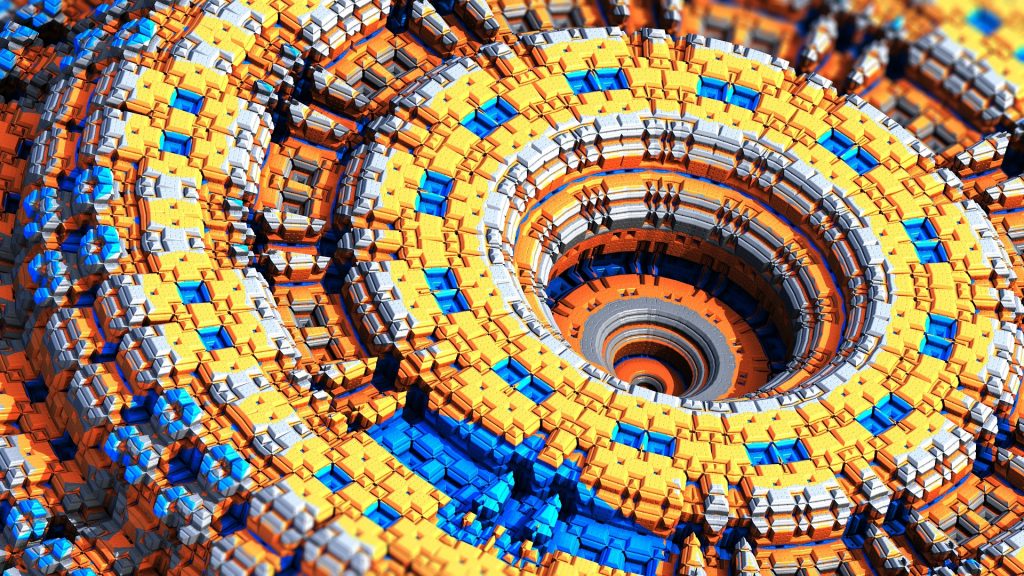Pattern Recognition
A post in the need of an editor…
I come back again and again to the idea of pattern recognition in business and life. I time traffic lights – I count as the lights change from one coloured state to another and back and forth as cars go through junctions and people cross. I watch the traffic lights at the next junction down. I know when to get ready to go so as it hits green, I’m moving. However experience also allows me to know that someone will be breaking the red light nearly 50% of the time, pattern recognition comes from experience. I do the same counting when I’m the pedestrian, though I give no leeway to cars that try and break lights.
In medicine respiratory rate is a key part of the Early Warning Systems they have for patient monitoring. Studies have shown that a change in respiratory rate can signal (sometimes hours in advance) that a patient is in decline. Watch for that change in pattern and save lives.
The idea of writing something on pattern recognition came again from a recent article I read about “The Roofman”. Jacob Shelton studied a few McDonald’s and realised that the core proposition of each restaurant and the corporation is that they are all cookie cutter restaurants that if it could break into one he could break into all of them. So he did, 40 before he got caught. But then studied his prison and the patterns and escaped from that.
Terry Kniess did extreme pattern recognition of The Price is Right and won it all. He taped 3 months of shows and started seeing prices repeat. (keep reading though)
And David Phillips bought pudding and soup, got the Salvation Army to remove coupons from them and they got to keep the food (he got a tax rebate cos charity donation) and he ended up getting a million travel miles. All after seeing a pattern and seeing it play through if he added himself into the pattern.

Patterns, algorithms, systems.
Giving a box of chocolates to cabin crew on a flight, even a Ryanair one will get you special treatment. But Ryanair will fire a staffer if they give you a free coffee or sandwich if they give you free stuff. Yet, they do. The system says they can’t do that but the system never considered the public giving them a box of chocolates either. What happens if you add in an unexpected kindness into the equation of a scrooge airline? Change the pattern or at least make it wobble? Unexpected kindness is like caffeine with painkillers, it brings a state-change faster. A toblerone can get you very far in an organisation you are accessing, if genuinely given. Recognise the pattern and mess with it and see what happens.
I would think computer security experts are like that in a way. “This is what happens when A sends this to B” “What if we send C attached to A?” “But people don’t do that”. You can break into a computer system with a large amount of pure luck if someone didn’t lock it down in the most basic way or you can break into a highly sophisticated system because you have years of experience and you’d studied this system and have an amazing knack of thinking on your feet. You’ve got the receipts, you’ve the data.
UX (user interface) people are good at pattern recognition too. They study people and systems and they know if the system does D most people will go ahead and do E. But if instead they make the system do C and then D, then people might instead do F. UX to a degree utilises psychology and data. And psychology is of course about pattern recognition.
Data will make you better at Pattern Recognition.
Experience is data that has been analysed.
“You’d be amazed at how much Warren reads – at how much I read. My children laugh at me. They think I’m a book with a couple of legs sticking out. “ Charlie Munger on reading.
Buffet and Munger. Two human data processing and analysing machines. I’ll write about them some other time but these billionaires are the Gods of the slow money movement. Reading, analysing, holding, pouncing. Pattern recognition.
Shake the hands of a carpenter or a chef, they’re going to be rough. (BTW, did you picture a man in this scenario? Tut, pattern recognition and unconscious bias). Carpentry is not kind on the hands nor is cheffing. I’m sure you could sit down some carpenters and chefs together and they can exchange war wound stories. Your meal or table might not be as good if it was made by soft hands. Not sure can you ask to feel the hands of your chef the next time you’re out for a meal though…

Pattern recognition “naturals” are not professionals
You can be a natural at sales because you *get* people and know or have a feeling how to play with them to buy something from you. You can become a great salesperson from lots of experience, hard work and lots of study. Being a natural is an advantage but being enthusiastic is too. The naturals at anything never become the superstars without lots of practice too. Raw talent won’t win the great prizes unless nobody else is in any way skilled. Natural is in the same family as amateur.
Muscle memory is acquired data. The more you do it, the better you get. That data gets more refined over time too. If you watch a lot of comedy – you can predict the next line. Only Fools and Horses, Mrs Brown, Big Bang Theory. “Fucking obvious” comedy it is but only obvious because you’ve seen lots of it and know the pattern. In fairness, three shows of these and you can predict all of the lines but that’s probably because they are influenced by the same old comedic shite that went before them. Carry On, Last of the Summer Wine, Fraiser.
But can you be a writer for the Big Bang Theory from just smothering on that repetition? Well you’re only seeing the end product so you’re only witnessing a single digit percentage of the export. The structure, pace, themes are going to be hard to replicate. (I however think a BBC headline of “A.I. writes perfect copy of Mrs Brown’s Boys” is but months away. I hope Brendan O’Carroll buys that tech and he can live forever as Mrs Brown.)
Amateurs are professionals before getting experience
Maybe you can get a gig writing gags for someone that sells to the Mrs Brown audience? Doing the same thing again and again and looking for a different result is madness apparently. But is that not practice too? The over-used story of Giotto’s perfect circle but he wouldn’t have been able to do that without 100s or 1000s of hours of practice. BTW, not referencing Gladwell’s 10,000 hours idea because like everything else he ripped it off and twisted it.
Media is about systems and knowing that A + B + C = makes a good story. You can work on being the A part of this system. Watching media patterns, the likes dislikes, the things that get the headlines, when there are lulls that your story can get a chance to be covered, knowing when to stay away from pitching. Anyway, a post by me on PR tips based on pattern recognition.
Good Data makes you .. good
I’m a big fan of the show Billions. The dodgy traders in the show like pro gamblers (cos same) have tipsters all over the place letting them know about movements of stock, about financial mischief, giving them shredded documents and piecing things back together. There’s a bit where they use satellite imagery to figure out how much stock a chipmaker is actually shifting. Many of these actions are real. Traders now buy satellite imagery data and can predict how much Walmart is making based on cars in their car parks or how much excess oil there is based on shadows made by oil tanks. Same with crops. Hard to hide your secondary or tertiary data these days.
This is how they were able to predict a sales decline in Chipotle too but they used Foursquare check-in data.
There are so many free resources for mining data on things.
- Google Alerts to find online mentions of competitors
- Facebook Ad Data is unreal for market research
- Google Keyword tool for what people are googling
- Daft.ie house prices for areas
- DoneDeal for the what the market will pay for something
- The CSO
- Scraper tools
- Membership directories
- Paper records – just use TinyScanner or OCR phone photos.
- Even instruction manuals
- And books.
I find autobiographies of business people are utter egotistical poo that are designed to just be a PR thing for their business or them rewriting history. Biographies of dead business and historical people are better. Hard Things about Hard Things (the first half) is an exception and a fav though. The best way to read a book when you want to get something good out of it.
How can you get better at Pattern Recognition?
Open your mind’s eye. Do LSD. No, not really. For me it’s just about noticing things. Ever tried a day of silence? No speaking, no devices, no reading or writing. Try that in an art gallery for 2-3 hours. Pay conscious attention to what are background objects or background noises.
There’s a nice book – On Looking where the author brings various people with expertise around her neighbourhood and they show her new things each time. Being better at looking and noticing to me aids with pattern recognition. Learning from others and how they see things gives you a swiss army knife of lenses at your disposal. If you only get views from your narrow field you won’t be very good at pattern recognition. You maybe will be good at Unconscious Bias though.
There’s this link with some advice.
Stop and treat everything like a painting in a museum and it’s raining outside so you have to stay in. Count traffic light changes. When the lights a few 100 yards ahead go to green, how long before your ones will? 20 seconds, 30 seconds. Look above the ground floor of shops, a whole new world. Put your phone in your hand. Notice the shape. Notice the edges. Notice the weight of it. Notice the temperature. How big is it in relation to your hand?

So you’re good at Pattern Recognition, so what?
You’re like a water diviner. The water is below us, dig down. Wow, how did you know? Nothing to do with knowing the waterway patterns… You should start spotting opportunities when you find the patterns. Knowing the patterns might mean using them to get something for you. Like how to get stuff into the media by knowing their patterns. Everyone has their own grooves, know what their groove is and journey in it to get a return. Sometimes it’s knowing what the pattern or process is and using it.
Sometimes it’s knowing how to break it. “This is how it’s always been done.” Nice and safe and predictable. We like our groove. An ass groove isn’t it? How do we use this “always done this way” groove. How did they get to “this is how it’s always been done”? If something changes, can they get out of the groove? Google: history of newspapers. That’s an equation really.
“This is how it has always been done” is a bit like the Bystander Effect too. If the rest of the group behaves like this then you will too. Even if smoke is coming into the room.
Can you remove, replace or add something to the equation to change it? Plan it out, what would happen, what new factors get added when you make a change to the equation? Line them up, press play, see what happens, rewind, move things around, press play again. How do you address what would happen?
I gave a talk (I also I thought I did a blog post but can’t find it) called “Your next business is on Boards.ie and DoneDeal.ie”. Twitter thread of it. If you study the history of newspapers and Craiglist you’ll see how Craigslist killed off listings in newspapers. Then 100s of startups pared off pieces of Craigslist and some became billion dollar operations. AirBnB, Ebay, Grindr, Hassle and so many more in a way were just sections on Craiglist before founders spotted patterns of interest and came up with ways of making these more efficient for people. Spot patterns on Boards or DoneDeal.ie, see what are the sections most popular, see what people are complaining about online about them, make something cheaper or less friction. Unbundle this into an app.
Uber or Hailo/myTaxi
I remember advising a taxi company years ago to get everyone that took a taxi to put them into their phone as Taxi and when they show it to the driver, they get a discount. That “wasn’t the done thing” so they wouldn’t do it. Why should they offer discounts? At that stage it was obvious that everything was going to be mobile but the apps weren’t there yet. There is still ample opportunity to take back from Uber and myTaxi.
Every step is different pattern recognition
Finding your opportunity and starting it is one set of patterns. As you grow the idea there will be other patterns and systems to deal with and you may have to learn a whole new dataset for that or bring in people that have the experience to do that. If you want to destroy your company then bring in a team of MBAs to run the place. So this was just the starter course.